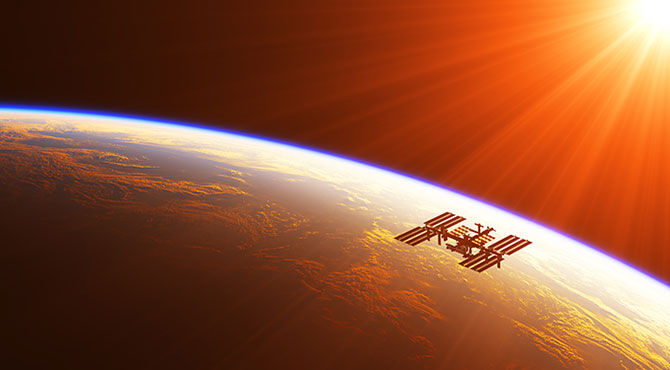The Science Museum’s first permanent virtual reality (VR) exhibit – a recreation of Tim Peake’s return journey to Earth in the Soyuz TMA-19M space capsule – opens today.
As the first British astronaut from the European Space Agency (ESA), Tim Peake spent six months aboard the International Space Station (ISS), returning to Earth in June 2016. Peake’s homeward journey lasted seven hours, travelling 400km at speeds of 25,000km per hour.
In association with Alchemy VR, the first-person VR experience, named Space Descent VR, is a 360°, 12-minute journey that puts the wearer in the pilot’s seat of the cramped
Soyuz capsule, seated next to a virtual Peake who describes the undocking process, how the rockets work and the bumpy landing in the Kazakhstan desert.
Speaking about Space Descent VR, Tim said, “It really is breathtaking – and that comes from someone who has spent an awful lot of time using VR systems while training for my first mission. Science Museum visitors are going to experience something that truly is very close to the real thing!”
The experience begins with the wearer floating outside the ISS, providing a 360° view of the outside of the ISS and the Soyuz capsule still docked to the ISS. Once inside the capsule, the “astronaut” can see all the buttons, levers and screens that have been designed and modelled from a real version of the capsule.
Tim Peake confirmed in January 2017 that he would be returning the ISS in the future – the ESA has committed to sending astronauts to the ISS until at least 2024.
The actual capsule that brought Tim Peake safely back to Earth has also been on display at the Science Museum since January 2017.
Relocate’s tenth anniversary awards
Science and technology is the theme behind
Relocate’s Awards 2017, our
tenth anniversary year to be held at the Science Museum in London on Thursday 11 May.
Says Fiona Murchie,
Relocate’s managing editor, “As we’ve been highlighting across the
Relocate media through our coverage of the CBI Annual Conference and other high-profile events, innovation – whether in science, the space industry and technology or in other fields – is the key to global prosperity and growth, particularly in challenging economic times and with Brexit now a reality.
“With growing skills shortages in key areas like science, technology, engineering and maths (STEM), employers are increasingly competing for the best and most creative talent. Our event will attract high-calibre international attendees across industry and the education sector.”

